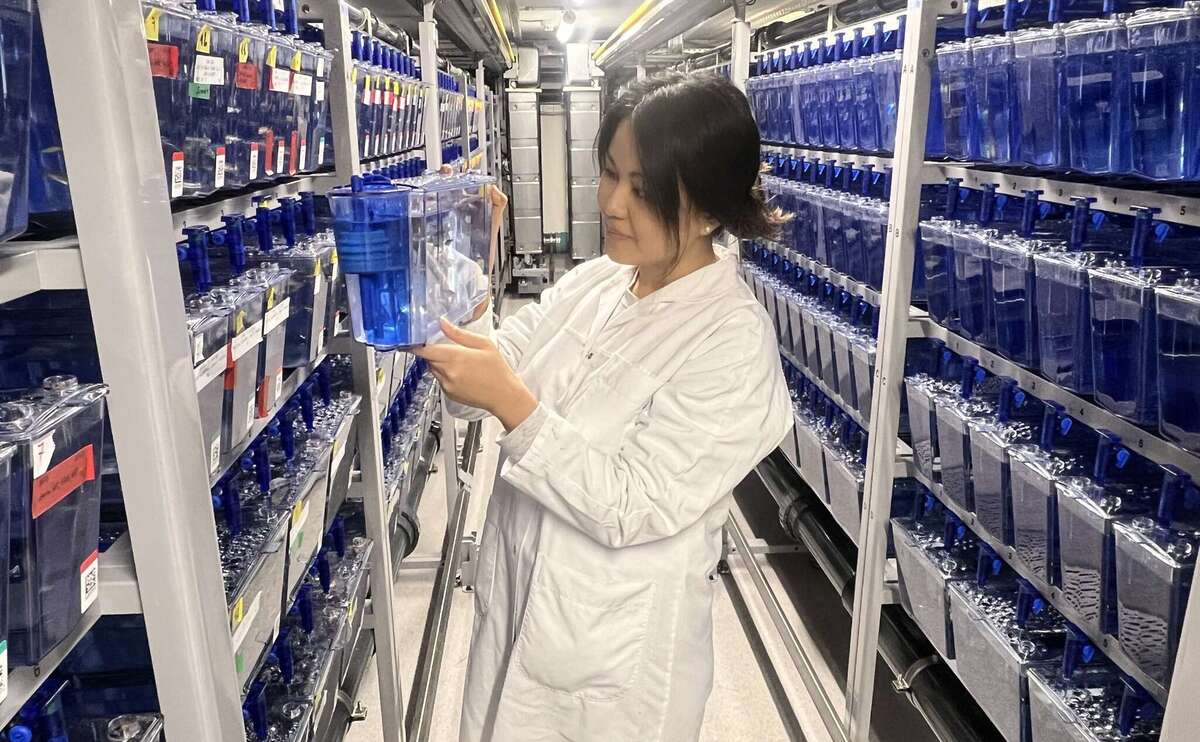Lucia Du, Postdoc, Group Schier

Can you provide us some insights into your research?
Development is a remarkably robust process that results in the generation of organs with reproducible size, shape and functions. My research aims to understand how organ size is regulated using zebrafish as the model organism.
What has been your personal motivation to continue research in academia after completing your PhD?
I am a naturally curious person and have always had a passion for biology. I thoroughly enjoyed the whole scientific process during my PhD such as coming up with hypotheses, designing experiments, data analysis, writing and collaborating with other scientists. The opportunity to discover something new and fascinating is really exciting for me which is why I decided to stay in research. For my current project, there is even more freedom for me to explore the unknown and to fuel my curiosity.
How can we inspire girls and female high school students to pursue a career in science/STEM *?
At high school I took an electronics class where I was one of two girls in a class of around 30 students. The teacher made remarks about how this topic is for boys and whilst I did well in that class, I was really put off the idea of considering engineering as a future career. On the other hand, I had amazing science teachers and felt there was a lot more encouragement to pursue a career in that area. For this reason, I think it is very important to have encouraging and supportive science teachers at school. In addition, having female researchers from academia/industry give talks at school would also be a good way to inspire more females to pursue a career in STEM.
Do you have visions how we can achieve gender equality?
The two major visions I have are: Encouraging students at an early age to explore subjects that are considered typically oriented for the opposite gender. Having figures in power – whether it be teachers at schools, professors at universities, or employers in the industry – to encourage and provide equal opportunities for all. It is also important that they address any biases or discrimination at the workplace.
* STEM = Science, Technology, Engineering and Mathematics


